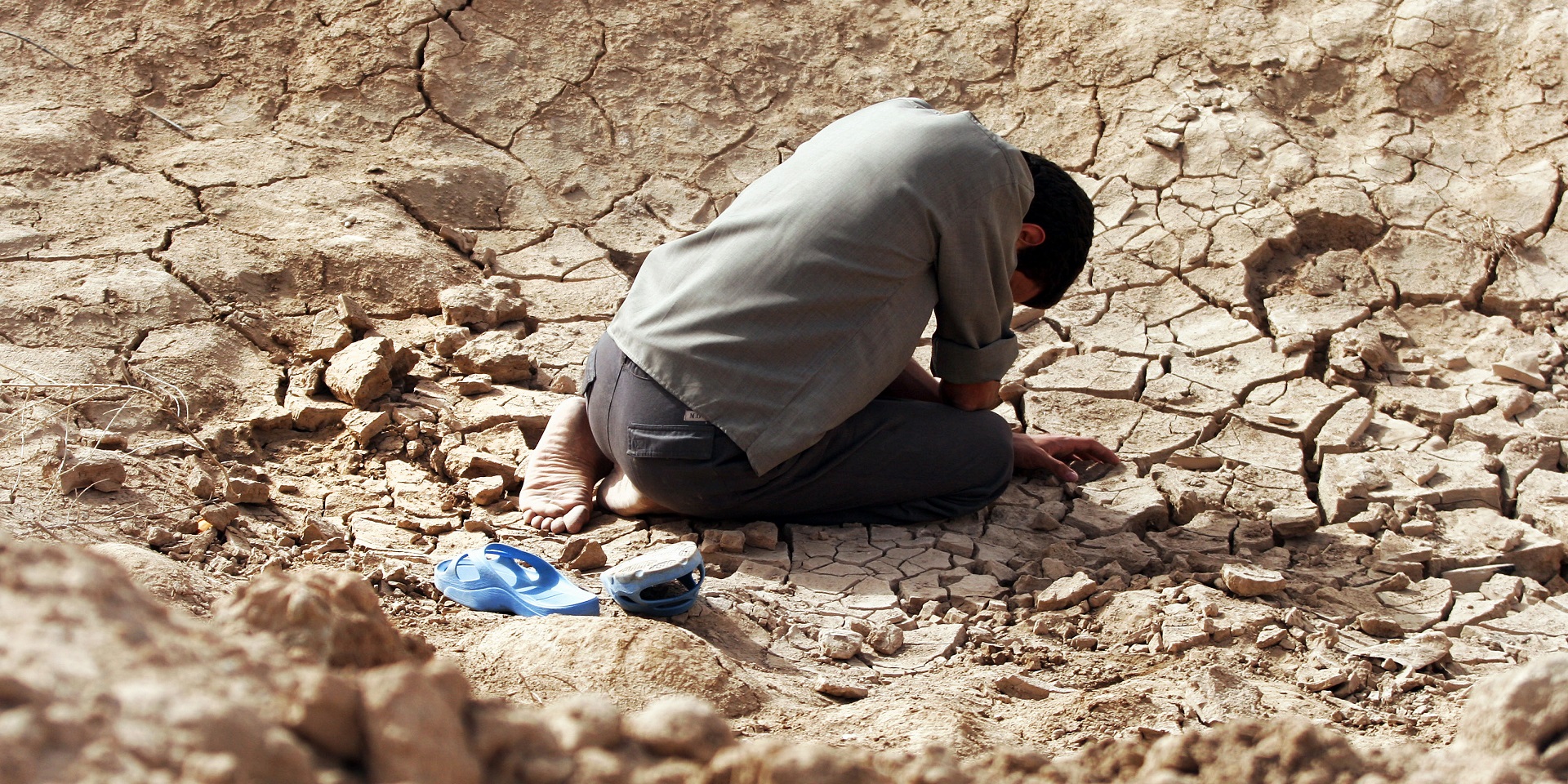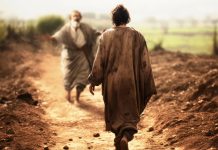Izzeldin Abuelaish wrote a book titled I Shall Not Hate, now translated into 13 languages, about the hatred that led to the death of his daughters. “Hate is a poison, a fire which burns you from the inside,” he writes.
“Oh God, they killed my daughters! Shlomi, I wanted to save them, but they are dead… They died on the spot. Allah, what have we done to them? No one can get to us. Oh, God! Oh Shlomi, oh God, oh Allah, my daughters are dead.”
For five minutes, on live TV on Israeli Channel 10, Palestinian doctor Izzeldin Abuelaish sobbed in despair over his three daughters and a niece killed during an Israeli airstrike.
He was a correspondent for the channel and was well-known for reporting about the war in Gaza, where he lived, and where no Israeli journalist was allowed to enter. But no one expected the shocking correspondence in the middle of a disaster. Those whose future he had protected at the hospital had ripped his soul apart and ruined his future. The scars of the past were painfully open.
Warning! The following images contain potentially disturbing content.
Scars from the past
Izzeldin grew up in the dusty Jabalia refugee camp in Gaza. Until the age of ten, he lived with his parents, three sisters, and six brothers (some of whom were stepbrothers) in a 32 square-foot room with no running water, no electricity, and no toilet. They all ate off of one plate and slept on one mattress. Most of the time, Izzeldin was barefoot, hungry, bitten by fleas, and despised by his stepbrothers.
“Today I look back and am thankful for getting through it at all, thankful for the teachers who saw a brighter future for me”[1], says Izzeldin.
At the age of seven, with a backpack made of a sack of flour tied with a string, Izzeldin started school. However, unlike the other children’s, his day started at three in the morning, so that he could work before school. He was the eldest of the brothers and had to provide for his family, as dictated by his culture. Surprisingly, all this did not harden him, nor did it stop him from learning diligently. On the contrary. His teachers convinced him that the world changes through education, and he was determined to change it.
On his first encounter with the war, he thought that the end of the world had come. Tanks were all over the camp, people were running and shouting in panic and there was chaos. Mothers with small children were dodging bullets, and men were falling around him. Those who had managed to escape, including his family, hid in the field for four days before returning to the camp, where many were dead or missing. For him, “home” would become synonymous with war.
Why are Palestinians and Israelis so divided when in fact they are so alike?
At the age of 15, he would realize how complicated and confusing the Palestinian-Israeli conflict is. For an entire summer, he lived and worked from morning till night on the Moshav Hodaia farm, owned by some Israelis. They were very different from the brutal soldiers, the only Israelis he had ever known.
The longing for home and his family in the refugee camp was alleviated by the Madmoony family, who treated him warmly. He understood that not all Israelis are the same. But he could not help but wonder why Palestinian children lived differently from the Israeli children. Why did the Palestinian children have to work while going to school? Why didn’t they get the same medical care? Why were Palestinians and Israelis so divided when in fact they were so alike?
The dream is starting to be fulfilled
He took these questions with him to Cairo, where, to his family’s amazement, he had received a scholarship. Finally, his dreams would become reality. He had wanted to be a doctor for years. A visit to Al-Shifa Hospital in Gaza had revealed to him a world in which respect for people went beyond social status and nationality, a good, decent and free world, one he had never been part of.
The student life in Cairo was a wonderful time, a period in which he made many friends, in which he began to discover the world, the way things are, and the miracle of life. It was during a course in the obstetrics and gynaecology department when he witnessed a birth for the first time. He then decided that he would dedicate his life to this; that he would assist and contribute to this miracle. His student years passed quickly, and his graduation placed him in front of an uncertain future.
“We study for our brothers”
“In my culture, we don’t study just to improve ourselves; we study to raise the standard of living of our brothers and sisters. My family saw me as a role model, and goodness knows we were all in agreement about the need to improve the lives of Palestinians.[2]” That was the main reason Izzeldin returned home, despite receiving a job offer as an obstetrician in Cairo. In addition, his father was very ill and needed his help.
The money he earned was barely enough to live on
The return to Gaza shocked him terribly. The Israelis controlled everything, and the only ones with privileges were the relatives of statesmen with good relations with the Israelis, millionaires, or their collaborators. He did not know anyone influential, so he was not allowed to practice medicine. He eventually found a hospital more than 35 kilometres from home, where he was employed in the gynaecology department. The money he earned was barely enough to live on.
After his father’s death, Izzeldin applied for a job in Saudi Arabia. No matter how much he wanted to help the Palestinians, the corruption in Gaza kept him from doing his job. The move to Saudi Arabia brought him several accomplishments: a life that allowed him to stop working from time to time, enough money to help his mother and siblings, and the opportunity to start his own family. In 1987, Izzeldin married Nadia, and a year later they had their first child, a little girl, named Bessan. Unfortunately, the joy of her birth was overshadowed by the First Intifada, the Palestinian uprising against the Israeli occupation.
After a one-year scholarship at the University of London, during which time he specialised in treating infertility, Izzeldin decided to return to Gaza, to his and Nadia’s families, especially since the political situation seemed to have stabilised. With the money raised, he opened a clinic in Gaza, where medical services were mostly free.
The fragile bridge of peace
With a growing family, Izzeldin had several responsibilities ,which did not, however, stop him from evolving professionally. During his studies in London, he had read several studies on infertility written by Israeli doctors. He gathered his courage and contacted them.
Izzeldin became the first Palestinian doctor at an Israeli hospital.
They quickly realised Izzeldin was a real professional, so they took him onto their team. He first started volunteering to fit in the team, then his colleagues fought for approvals, documents and permits to cross the border, to make him a medical resident at Soroka, their hospital. Through their efforts, Izzeldin became the first Palestinian doctor at an Israeli hospital.
Through him, his colleagues came into contact with the reality of the Gaza Strip and the conditions in which most Palestinians lived. Izzeldin’s friends condemned him for developing a new generation of oppressors through his work in treating Israeli infertility. Still, they received the doctor’s Israeli guests with respect and friendship. This friendship had become a fragile bridge between the two conflicting nations.
The tragedies lurking at the door
Izzeldin’s academic career continued to be exceptional. The Israelis sent him to Milan and Brussels with speciality scholarships. He made it to Harvard as well. In all his travels, he was accompanied by the painful feeling that he was betraying his family, that he was not with his eight children and his wife, who was carrying all the burden. He gained comfort at the thought that their lives would not always be like this.
In 2008, the news that Nadia had leukaemia found Izzeldin in Nairobi. He didn’t even have a chance to talk to her. He found her in a coma. Within a few days, the one who had supported him all his life left him. For Izzeldin, the world collapsed at her death.
At the end of the year, Izzeldin decided to move his family to Canada, where he had received a job. Also in December, however, the attacks on Gaza began. In 2009, on January 16th, Izzeldin was at home. It was a quiet Friday night, the girls were in the kitchen, and Izzeldin was playing in the hallway with the boys, when an Israeli air raid tragically marked Izzeldin’s life. A terrible bang and three of his daughters and a niece lay mangled and lifeless.
“Who can see Izzeldin and not cry?”
Izzeldin’s despair was captured by the Israeli public television cameras, which arrived there in a rush. The whole of Israel saw the suffering of this father, and his weeping seemed to awaken ordinary people and authorities to reality. Seeing the reports, Israeli Prime Minister Ehud Olmert said, “Who can see Izzeldin and not cry?” Two days later, Olmert ordered a ceasefire.
Izzeldin realised that the peace he had dreamed of for the Gaza Strip was far away, and with what was left of his family, he left for Canada. There he wrote a book, titled I Shall Not Hate, now translated into 13 languages, about the hatred that led to the death of his daughters: “Hate is a poison, a fire which burns you from the inside”, he writes. In honour of his daughters, he set up an organisation that helps thousands of young women fulfil their dreams, as he would have liked for his daughters, Maya, Bessan, and Aya. He goes to conferences all over the world to talk about the peace and love that is above life or death.



















